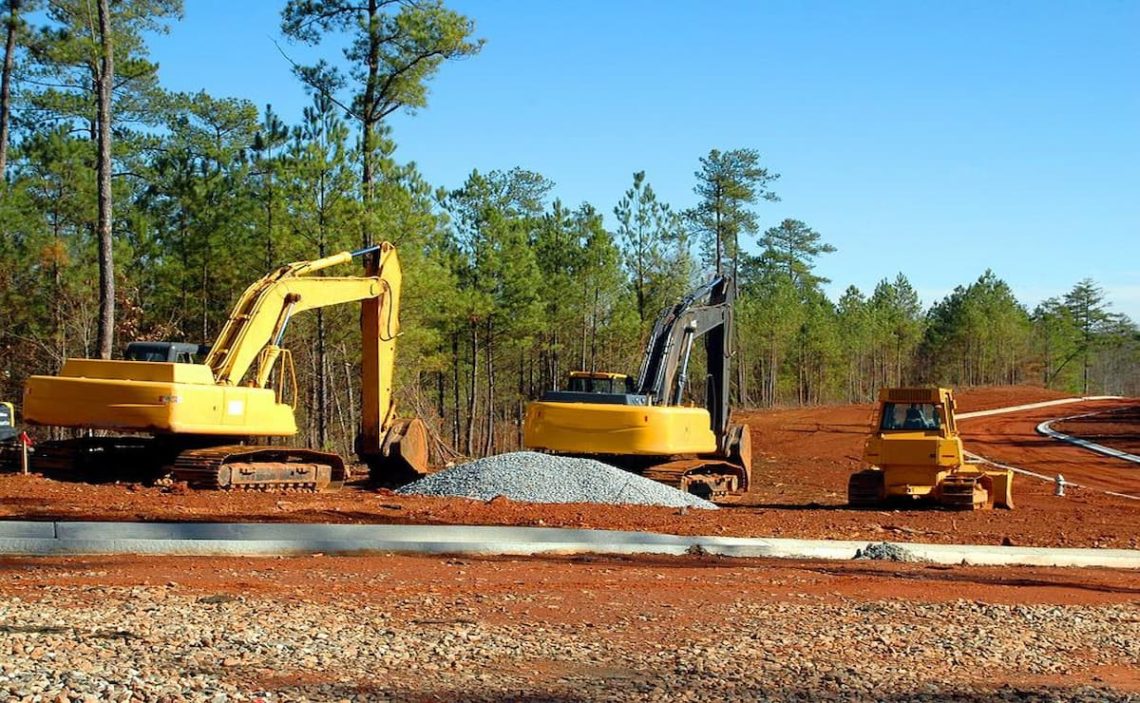To obtain a land loan, the steps to be taken and the credit history are similar to a home mortgage. However, the requirements for this type of loan can be somewhat more demanding, especially if you have a bad financial history or debts.
Let’s take a closer look at how a land mortgage works, the conditions this loan may have and what happens if you have a bad credit history.
What are loans to buy land?
Loans to buy land are a way of financing land with no building.
There is no single way of categorising the land that can purchase. Depending on the type of land, the loan may be in one form or another, with more or fewer requirements for you to obtain it.
The three different types of land you can buy (and which influence your loan) are as follows:
- Raw land: this is a piece of land that does not incorporate any improvements. It does not yet have a water or sewerage connection and may not even have road access.
- Unimproved land: this land may have some basic infrastructure or even a small facility, for example, the land where a house stood in the past. They will usually not have access to utilities that need to be connected if they build a house.
- Improved land: this would be land on which everything is ready to build a house. It has access to all services and building conditions. It is also known as Lot
What are loans to buy land like?
There is not much difference between a mortgage to buy land and a mortgage to buy a house. These loans are based on a down payment and a series of instalments over a while.
The instalments are amortised periodically, and the property becomes free when the agreed payment is made.
It should note that these loans are more complicated to obtain than personal loans. Generally, mortgages pose a higher risk to the lender, whether for housing or land.
Because of their higher amount and longer duration, real estate or land loans also have a higher exposure to default. This is why not all lenders offer mortgages, why they are more expensive to finance than other options, and why a higher credit score is required.
Also, in this financing, the percentage to be paid initially varies greatly depending on the type of land you are buying:
- Raw land: at least 35% of the cost of the land.
- Unimproved land: at least 25% of the cost of the land
- Improved land: at least 15% of the price of the land
Types of loans to buy land
There is no single way to finance the purchase of land. Although there are more, the five most common are as follows:
Bank loans: a financial institution that assumes the financing. It will require the mortgage guarantee of the land itself and possibly an external guarantor.
- Government programmes: There are different government programmes aimed at helping finance the land purchase (for new housing). They improve the conditions of access to financing and reduce the minimum credit score.
- Home Equity Lines of Credit (HELOCs): these are another way of financing the land purchase. In this case, the loan is based on the valuation of what you provide as mortgage collateral. It works as a line of credit and not as a loan. It is often used for down payments on loans to buy land.
- USDA loan: This is a loan for purchasing land and construction of housing on qualified rural land. The target user is moderate to low-income households. The land financing can be combined with the funding for the construction of the house.
- SBA loan: in this case, the land purchase for commercial property is financed. It is a programme called the U.S. Small Business Administration. It usually contributes to the financing of approximately 40% of the loan needed.
What can I do to get a land loan with bad credit?
Most lenders will require you to have a high credit score. Although it may vary depending on the bank or lender, these scores can be as high as 700 points.
As the value of the property and the need for financing increases, so does the credit score requirement.
Access to a loan becomes more difficult when you have a bad credit history and a low credit score. Some things you can do to try to improve your position, in this case, are as follows:
- Seek out loan proposals with lower credit score requirements.
- Renegotiate debts and improve your borrowing position.
- Provide more collateral and guarantees
If it is usually difficult to obtain any loan with bad credit, in the case of buying land, this is especially difficult.
Before buying land, if you have a bad credit history, you should probably consider improving this history to make the process easier.
Journalist and historian. Writing content for the internet full time since 2009. He has collaborated and continues to collaborate in some of the main networks of blogs on economics and finance in Spain, Mexico and the United States among other countries, writing in both English and Spanish.
He specializes in content on personal finance management, insurance, savings, investment, etc., although he has written and supervised for other types of topics throughout his more than twelve years of experience in internet content.
Some samples of his work over the years in FinancialRed, Bolsa24, or Euribor.com.


